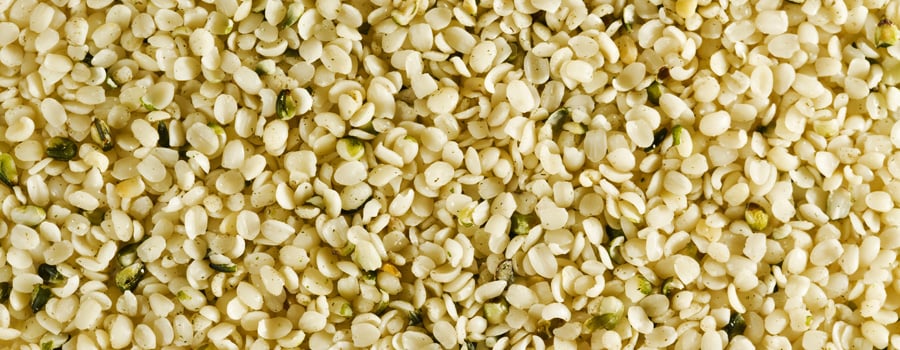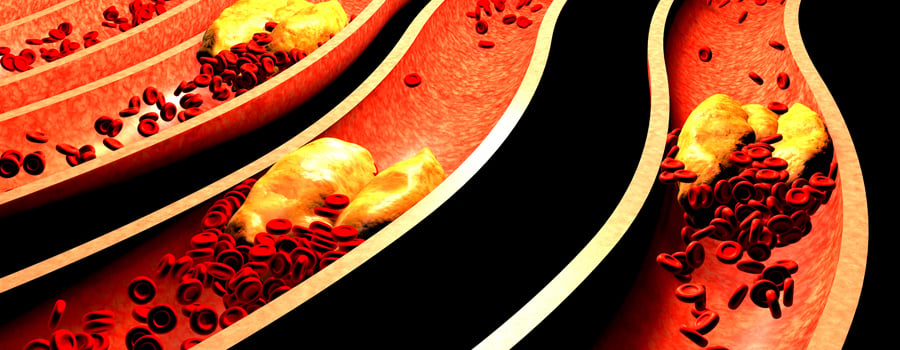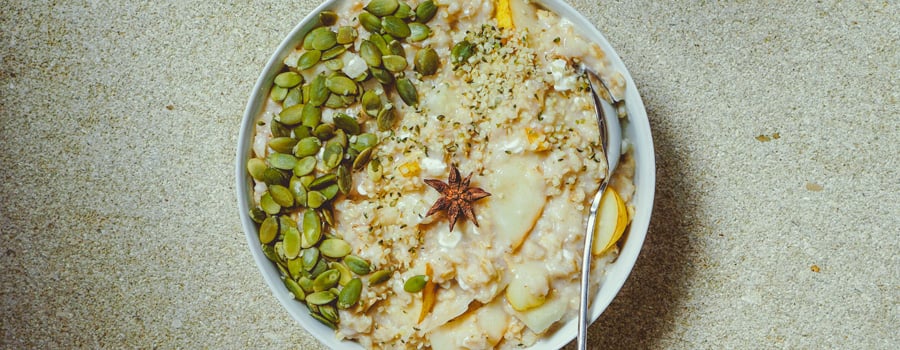.

The Benefits of Adding Hemp Seeds To Your Daily Diet
Heard about the hemp seed craze but not sure on how to incorporate this super-food into your diet? Click here for an in-depth look at hemp seeds, what they are, the health benefits they boast, and simple tips on how to add them to your day-to-day diet.
Hemp seeds are taking the health-food world by storm, boasting a wide variety of health benefits including a loaded nutritional profile, a high concentration of vitamin and minerals, and much more.
However, incorporating exotic superfoods like coconut oil or hemp seeds isn’t always easy, especially for those of us that aren’t fitness or health gurus.
In this article, we take an in-depth look at hemp seeds, what they are, and the health benefits they can provide. Plus, we’ll show you some super simple ways to incorporate them into your diet and reap the rewards.
WHAT ARE HEMP SEEDS?
Hemp seeds come from the hemp plant, which is a special variety of cannabis sativa grown mainly for industrial purposes.
Hemp is an extremely fast-growing and resilient plant that can be used, processed, or refined to create a variety of commercial products, including paper, textiles, clothing, biodegradable plastics, paint, insulation, biofuel, and food.
Hemp plants are the same species as the cannabis plants used to produce marijuana. However, hemp plants generally contain much lower concentration of THC, the psychoactive compound in cannabis that gets us “high.”
Hemp seeds only contain trace amounts of THC and therefore don’t produce any psychoactive effects in humans or animals when consumed.

HOW ARE THEY USED?
Hemp seeds are edible and have featured in numerous articles and studies for their nutritional benefits. They can be eaten raw just like regular seeds (like sunflower or chia seeds), crushed or ground into a fine meal, or pressed to make oil.
WHAT ARE THE BENEFITS OF USING HEMP SEEDS?
Eating hemp seeds has numerous benefits. Here are some of the main reasons you should consider incorporating them into your diet:
THEY ARE EXTREMELY NUTRITIOUS
As you probably saw in the nutritional profile above, hemp seeds are extremely nutritious.
They are exceptionally rich in healthy fats and fatty acids, especially linoleic acid (omega-6) and alpha-linolenic acid (omega-3).
Hemp seeds are also a great source of plant-based protein (over 25% of their total calorie count comes from high-quality protein) and amino acids like arginine (proven to have anti inflammatory properties), glutamic acid (shown to improve brain function and boost the metabolism), and many more.
Hemp seeds are also rich in vitamins E (a natural antioxidant) and B (important for cellular metabolism), calcium, magnesium, iron, and zinc.
THEY MAY PREVENT HEART DISEASE
According to the World Health Organisation, heart disease is the number 1 cause of death around the world.
Hemp seeds contain high concentrations of arginine, an amino acid shown to help dilate blood vessels[1] and reduce hypertension[2], to important factors in preventing heart disease.
Hemp seeds are also particularly high in dietary fiber which is suggested to improve blood cholesterol levels and subsequently reduce the risk of heart disease, stroke, obesity and type 2 diabetes, according to the American Heart Association.[3]
Additionally, animal studies have shown that hemp seeds or hemp seed oil may decrease the risk of blood clot formation[4] and help the heart recover after a heart attack.[5]
THEY MAY REDUCE SYMPTOMS OF PMS AND/OR MENOPAUSE
Roughly 80% of women suffer from symptoms, both physical and emotional, caused by premenstrual syndrome. Research[6] suggests that these symptoms are likely to be caused by heightened sensitivity to the hormone prolactin.
Hemp seeds are rich in gamma-linolenic acid (GLA) which, part of a group of fatty acids which have been shown[7] to reduce the effects of prolactin and reduce the symptoms of PMS.
Studies[8] have also shown that other dietary supplements rich in GLA, such as primrose oil, can help to reduce the symptoms of PMS, including breast pain and tenderness, depression, irritability and fluid retention.
GLA is also believed to be useful in the treatment of menopause, with some studies[9] suggesting it may regulate hormone imbalances and inflammation.

THEY MAY AID DIGESTION
Dietary fiber is very important for digestive health, and hemp seeds are a great source of soluble and insoluble dietary fiber.
Soluble fiber[10] plays an important role in digestion, providing nutrients for digestive bacteria, while insoluble fiber[11] helps to add mass to fecal matter and push waste through the gut.
However, it is important to note that the majority of the fiber in hemp seeds lies in the outer shell of the seed. Hence, de-hulled or shelled seeds contain very little fiber.
THEY MAY HELP TREAT SKIN DISORDERS
Hempseed oil is a rich and balanced source of omega-6 and omega-3 polyunsaturated fatty acids, which play an important role in managing the body’s immune responses and skin conditions.
A 2005 study published in the Journal of Dermatological Treatment found that hemp seed oil significantly reduced the symptoms of atopic dermatitis by causing significant changes in plasma fatty acid profiles.
It may also relieve dry skin, improve itchiness and reduce the need for skin medication.
THEY MAY HELP REDUCE SYMPTOMS OF ARTHRITIS
Arthritis affects roughly 50 million[12] adults across the globe. According to the World Health Organisation[13], roughly 50% of people suffering from arthritis are unable to hold down a full-time job within 10 years of the onset of the disease.
Gamma linolenic acid, the same compound shown to treat PMS, has also been shown to have anti-inflammatory properties.
A 6 month study[14] published in the journal of Arthritis and Rheumatism found that consuming the stand alone GLA found in hemp seeds reduced arthritis symptoms by 25% compared to the placebo at only 4%.
HOW TO EAT HEMP SEEDS:
Incorporating hemp seeds into your diet is as simple as adding them to muesli or salads, or even eating them raw. They boast a rich, nutty flavour somewhat similar to the flavour of sunflower seed and pine nuts.
Alternatively, also try adding them to homemade bars, muffins and other baked goods.
The minimum recommended daily intake of shelled hemp seeds is 42 grams, or roughly 4 heaped teaspoons. However, if you plan to use hemp seeds to treat any of the conditions above or supplement other foods in your diet, your individual minimum intake might change.
Remember, always consult your doctor, healthcare professional, or nutritionist before using hemp seeds to aid management of a medical condition or supplement a part of your diet.
For some easy-to-follow recipes that use hemp seeds, check out this previously published article on our site.

NUTRITIONAL PROFILE OF HEMP SEEDS
Here’s a quick breakdown of the nutritional profile of hemps seeds:
Note: The values below are taken from draxe.com[15] and are per 100 grams.
- Energy: 2,451 kJ (586 kcal)
- Carbohydrates: 4.67 grams
- Sugars: 1.50 grams
- Dietary fiber: 4.0 rams
 FAT PROFILE:
FAT PROFILE:
- Fat (total): 48.75 grams.
- Fat (saturated): 4.600 grams
- Fat (trans): 0 grams
- Fat (monounsaturated) : 5.400 grams
- Fat (polyunsaturated): 38.1 grams
- Omega 3: 9.301 grams
- Omega 6: 28.698 grams
 PROTEIN PROFILE:
PROTEIN PROFILE:
- Protein (total): 31.56 grams
- Tryptophan: 0.369 grams
- Threonine: 1.269 grams
- Isoleucine: 1.286 grams
- Leucine: 2.163 grams
- Lysine: 1.276 grams
- Methionine: 0.933 grams
- Cystine: 0.672 grams
- Phenylalanine: 1.447 grams
- Tyrosine: 1.263 grams
- Valine: 1.777 grams
- Arginine: 4.550 grams
- Histidine: 0.969 grams
- Alanine : 1.528 grams
- Aspartic acid: 3.662 grams
- Glutamic acid: 6.269 grams
- Glycine: 1.611 grams
- Proline: 1.597 grams
- Serine: 1.713 grams
 MINERAL CONTENT
MINERAL CONTENT
- Calcium: 145mg
- Iron: 14 mg
- Magnesium: 483 mg
- Manganese: 7 mg
- Phosphorus: 1160 mg
- Potassium: 859 mg
- Zinc: 7 mg
 VITAMIN CONTENT
VITAMIN CONTENT
- Vitamin A: 3800 IU mg
- Vitamin B1: 0.4mg
- Vitamin B2: 0.11 mg
- Vitamin B3: 2.8 mg
- Vitamin B6: 0.12 mg
- Vitamin D: 22.77.5 IU mg
- Vitamin E: 90 mg IU mg
- Nitric Oxide and Pathogenic Mechanisms Involved in the Development of Vascular Diseases - PubMed http://www.ncbi.nlm.nih.gov
- Dietary Nitrates, Nitrites, and Cardiovascular Disease - PubMed http://www.ncbi.nlm.nih.gov
- Whole Grains, Refined Grains, and Dietary Fiber | American Heart Association http://www.heart.org
- Preventive and Treatment Effects of a Hemp Seed (Cannabis Sativa L.) Meal Protein Hydrolysate Against High Blood Pressure in Spontaneously Hypertensive Rats - PubMed http://www.ncbi.nlm.nih.gov
- Cholesterol-induced Stimulation of Platelet Aggregation Is Prevented by a Hempseed-Enriched Diet - PubMed http://www.ncbi.nlm.nih.gov
- Prevalence, Impacts and Medical Managements of Premenstrual Syndrome Among Female Students: Cross-Sectional Study in College of Health Sciences, Mekelle University, Mekelle, Northern Ethiopia - PubMed http://www.ncbi.nlm.nih.gov
- Essential Fatty Acids for Premenstrual Syndrome and Their Effect on Prolactin and Total Cholesterol Levels: A Randomized, Double Blind, Placebo-Controlled Study - PubMed https://www.ncbi.nlm.nih.gov
- The Role of Essential Fatty Acids and Prostaglandins in the Premenstrual Syndrome - PubMed http://www.ncbi.nlm.nih.gov
- The Effects of Cannabis Sativa L. Seed (Hempseed) in the Ovariectomized Rat Model of Menopause - PubMed https://www.ncbi.nlm.nih.gov
- Fiber and Prebiotics: Mechanisms and Health Benefits - PubMed http://www.ncbi.nlm.nih.gov
- Metabolic Effects of Dietary Fiber Consumption and Prevention of Diabetes - PubMed http://www.ncbi.nlm.nih.gov
- Arthritis Science http://www.arthritis.org
- WHO | Chronic rheumatic conditions http://www.who.int
- gamma-Linolenic Acid Treatment of Rheumatoid Arthritis. A Randomized, Placebo-Controlled Trial - PubMed https://www.ncbi.nlm.nih.gov
- Hemp Seeds Benefits, Nutrition, Uses and Side Effects - Dr. Axe https://draxe.com

































